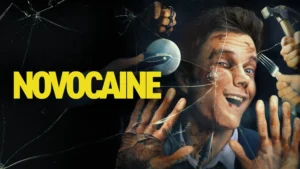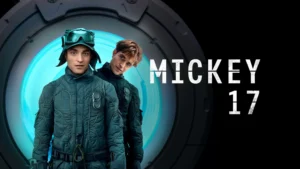Movie blog — Eleanor the Great (2025): Age, Storytelling, and the Quiet Power of a Single Voice.
Scarlett Johansson steps behind the camera for the first time in fiction features with Eleanor the Great, a small, carefully observed drama that lets one unforgettable performance steer the whole enterprise. At its heart the film is about grief and story — how we stitch ourselves back together by telling (and borrowing) tales — and it lives or dies on the charisma of its 94-year-old protagonist. If you like films that listen more than they shout, this one is for you.
Quick facts (the short stuff you’ll want to quote).
Director: Scarlett Johansson (feature fiction directorial debut).
Writer: Tory Kamen.
Principal cast: June Squibb (Eleanor Morgenstein), Erin Kellyman (Nina), Jessica Hecht (Eleanor’s daughter), Chiwetel Ejiofor (Nina’s father/news anchor), plus Will Price, Greg Kaston and others.
Runtime: 98 minutes. Distributor: Sony Pictures Classics (North America) / TriStar (international).
Premiere / Release: World premiere in Un Certain Regard at Cannes, May 20, 2025; U.S. release Sept 26, 2025.
Box office (theatrical): ~US$2.58 million worldwide (domestic ~$2.52M; international ~$62k).
How many cast members — and who carries the Eleanor the Great movie?
The credited cast list is compact but robust. The story revolves mainly around a small circle: June Squibb in the title role, Erin Kellyman as Nina (a 19-year-old student who befriends Eleanor), Jessica Hecht as Eleanor’s daughter, and Chiwetel Ejiofor in a key supporting role. Several other performers (Will Price, Greg Kaston, Rita Zohar and a handful of real survivors and community members) populate the JCC scenes and flesh out Eleanor’s world. Practically speaking, the film depends on a tight ensemble—counting principal and important supporting roles you’re looking at roughly a dozen named performers who matter to the story.
The movie is quintessentially an actor’s piece: everything funnels through June Squibb. If you go to the film wanting spectacle or twisty plotting, you’ll be disappointed, but if you want to be held by a single, charismatic presence, Squibb delivers. Critics at Cannes and in U.S. coverage singled her out as the anchor of the whole picture.
Who is the “means character” of Eleanor the Great Movie?
The “means character” is the vantage point that carries the audience through the story — and in Eleanor the Great that is unambiguously Eleanor Morgenstein, as played by June Squibb. The film frames the narrative through her grief (the loss of a long-time friend and roommate), her temptation to claim another woman’s Holocaust-survivor history as her own, and the unlikely friendship she builds with Nina. We experience events through Eleanor’s stubbornness, her tendency to misremember and reframe, and the small, specific choices she makes as she tries to belong again. Nina functions as the secondary viewpoint (a younger character whose own grief is processed through their conversations), but the emotional fulcrum remains Eleanor.
Box office and release context.
This is a small, adult-oriented indie drama released by a specialty distributor, and its theatrical numbers reflect that model. As of the latest tallies, Eleanor the Great grossed about US$2.58 million worldwide, with roughly US$2.52 million at the U.S. box office and a tiny international figure thereafter. Given the film’s Cannes premiere, a platform festival strategy, and a Sony Pictures Classics release, the theatrical run functions more as a prestige/visibility play (and awards-season positioning) than a profit-centered tentpole. Digital/streaming windows will be important to the film’s longer commercial life.
To read that another way: this is a theatre-first prestige picture with festival buzz and a central performance meant to travel into critics’ conversation and later streaming homes — not a wide-release blockbuster. Even with modest box office, the Eleanor the Great film cultural cachet (Cannes, a high-profile directorial debut) is part of its long game.

The film’s niche — tone, themes and who will love it.
Eleanor the Great sits squarely in the wedge between character drama and darkly comic social observation. Its closest cousins are late-career actor-led indies that explore aging and loneliness (think The Leisure Seeker or Amour, minus the operatic melodrama). It’s a film for audiences who want quiet emotional intelligence, for viewers who like their empathy to be worked out in small, concrete gestures rather than sweeping speeches.
Major thematic threads:
- Grief and the hunger for identity: Eleanor’s temptation to borrow another life’s story raises questions about how people steal narratives to feel less alone.
- Memory and truth: The Eleanor the Great movie probes the ethics of storytelling and the ways memory softens or sharpens the self.
- Jewish identity & intergenerational connection: Through the JCC and the Holocaust subplot, Johansson’s film quietly considers how community preserves — and sometimes curates — trauma. Johansson reportedly worked with the USC Shoah Foundation to ensure care and authenticity in those scenes.
The tone is tender, occasionally wry, sometimes awkward — and intentionally so. The Eleanor the Great film delights in the friction between Eleanor’s bluster and the younger characters’ earnestness; most of the humor arrives from character truth rather than punchlines.
Plot (brief, spoiler-light).
After the death of her lifelong roommate, 94-year-old Eleanor moves in with her daughter in New York. Lonely and aching for belonging, she drifts into local life at the Jewish Community Center, where a mix-up and Eleanor’s own impulse to belong lead her to assume parts of her late friend’s story. A young journalism student, Nina, starts researching Eleanor and becomes the listener to whom Eleanor the Great confesses more than she probably should. The friendship shifts both women: Nina is learning to process her own loss and public life (she is the daughter of a famous anchorman), while Eleanor finds new purpose and the awkward consequences of living inside another’s narrative. The film builds on this collision — quiet scenes, small betrayals and eventual reckonings — rather than on plot twists.
Performances & filmmaking — what works.
- June Squibb. Plainly, this is her movie. She brings spark, physical specificity, and an lived-in ferocity that makes even Eleanor’s worst impulses feel human. Variety and other festival coverage flagged her as awards conversation material — and it’s easy to see why.
- Erin Kellyman & Chiwetel Ejiofor. Kellyman’s Nina provides a younger emotional echo for Eleanor, and Ejiofor’s presence (as Nina’s father, a public figure) complicates the film with a media-and-privacy subplot that keeps the film from floating off into sentimentality. Their restraint lets Squibb breathe.
- Direction & craft. Scarlett Johansson’s direction is careful rather than flashy. Hélène Louvart’s cinematography favors intimate framing; Dustin O’Halloran’s score reserves big gestures for small moments. The result is a film that rewards attention. Johansson earned a standing ovation at Cannes, and while reviews were mixed in places, most critics agreed her instincts for actors are strong.
What doesn’t quite land.
- Pacing & momentum. The movie’s appetite for smallness is a virtue, but it can also feel slow; audience expectation around a high-profile directorial debut may have skewed toward sharper statement. Some critics at Cannes and in coverage thought Johansson’s handling of humor vs. seriousness could be uneven.
- The Holocaust subplot’s balance. Using survivor testimony and real community members was a conscientious decision, but the film’s tonal juggling — comedy, identity appropriation, and real atrocity memory — will feel risky to some. Johansson’s collaboration with foundations was meant to mitigate this, but viewers’ responses depend on individual thresholds.
- Limited box office reach. As the numbers show, this is not a commercial juggernaut. Its future impact will likely be in awards attention and streaming audiences rather than ticket-booth records.
Final verdict — is it worth your time?
If you love actor-centered dramas about late life, identity and the ethics of storytelling, Eleanor the Great is one of 2025’s gentler surprises. It’s an acting showcase — June Squibb’s performance alone is worth the ticket — and a thoughtful debut from a director who clearly knows how to get the best from performers. It’s not perfect: the pacing and tonal risks aren’t always rescued by payoff, and the box office was modest. But the film’s quiet humanity lingers: it asks, with real tenderness, how we keep ourselves afloat after loss and how the stories we tell shape who we are.
If you want a consolation-prize of cinema — a movie that doesn’t fix everything but makes the small, complicated things feel honored — Eleanor the Great will sit with you long after the lights come up.





